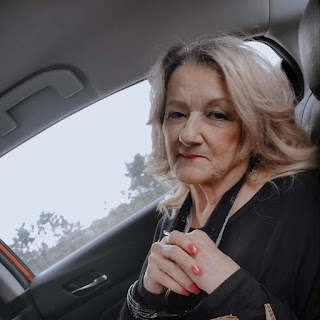According to Walter Elliot, a 19th century American priest, “perseverance is not a long race; it is many short races one after the other.”
A life measured in terms of months or years due to a condition like cancer is much the same. Daily routines are disrupted, with all family members impacted by what the person with disability or disease is going through.
I did it again. I had one of those “OMG, I’m old!” moments. Then I took a breath and reminded myself of those people, young and old who live with since birth disabilities like I do, who never came close to the number of years I’ve chalked up. I’ll be 70 next year! Imagine that.
On 11 July, my little friend Eli James from Tennessee passed away. He lived with the most severe form of Spina Bifida and managed to squeeze a lot of purpose out of almost 13 years. He was a firecracker and won’t be forgotten by those who got to know him through a Facebook presence created by his Mom, Dawn. His service dog, Tobias, was a huge part of his life.
Death visited my online world again when, on Monday, 11 September, my friend, Patricia Ernsberger, from Mansfield, Ohio passed away due to stomach cancer that grew quickly.
Using the handle SilkyWay, in honour of a cat who liked only her, according to her grandson, Kody, her death was a total shock and saddened our scrabble community. She was a vital part of the daily ‘doins’ and we could always count on her for all manner of ‘stuff of life’. Her family had expected at least a few more weeks. Alas, they were not given any more time with a woman with whom I interacted for years on a daily basis – all of it online. On a scrabble site. We were hooked! Oddest thing, though – we never played each other. Now, we never will.
Over my many years of participation on the ‘information highway’, I’ve come across people from all over the world – people I’ll never meet in person but with whom I have a connection nonetheless. For over a decade, I’ve been part of an online scrabble community at a site called International Scrabble Club. Many of its members came from now defunct sites; I migrated from Internet Relay Chat’s #networdz channel. Lots of lively conversations each day with people, from the very young to the very old; young people still in grade school to men and women in university or trade school -- some taking their first degree, others on their second or third.
Trish was thrilled to meet one of our fellow players in person, Hollie Packer, know in our scrabble world as luvs2scrab. We, in the scrabble channel, were equally thrilled for them. Sadly, Hollie passed away not long after, having struggled quietly with illness. For her, the scrabble tile flinging was a diversion from the slings and arrows of life.
Others in the group also had the opportunity and pleasure of meeting and greeting, sometimes one person meeting another, or a group getting together at a mutually agreed upon location; some met at scrabble tournaments.
The rituals we undertook for years became a staple for those of us who lived with challenges to mobility that impacted comfort, critical to moving around in the community. In some circles we’d be called lonely – we weren’t. We had daily ‘people’ fixes though we never made coffee for them or shared a meal. Online relationships and connections are no less valuable than the ones we have in real life where we can see folks breathing and blinking.
Trish and I had one thing in common; we weren’t much for going out and about in our community, finding it more comfortable to stay home, in jammies with a cup of coffee, a few scrabble games or to watch a classic movie. We both were huge fans of British whodunits and got to enjoy all manner of excellent films via online streaming. Though sometimes a challenge, internet technology and all its quirks was something both of us wanted to learn more about. Many folks in our chat room were trained in IT and always ready to offer instruction and advice. As well, I had my writing and Trish had her crafting. We stayed busy and engaged in things that were important to us.
I found myself often taking Trish into private chat to explain to her how to do this or that, or how to install and set up a program I thought she might like and find useful. She was ever the student and truly loved learning. Her limited out and about frustrated her emotional health, but she never let it get her down, not one to dwell on situations out of her control. I am convinced it’s the not stewing about things that we cannot change that makes our quality of life better and allows us to get up each day with a renewed sense of purpose.
Trish’s life was one of perseverance. She kept going in spite of many challenges. I think that’s what drew me to her. Many in the world define themselves based on the stuff they’ve accumulated, convinced they couldn’t do without this or that and seemed not to believe folks who would say that their slow-paced life was enough. It is! Trish proved that it was.
Rest in peace, my friend.
Carla MacInnis Rockwell is a freelance writer and disability rights advocate living outside Fredericton, NB with Miss Lexie, a rambunctious Maltese and Mr. Malcolm, a boisterous Havanese. She can be reached via email at mailto: Carla MacInnis Rockwell

